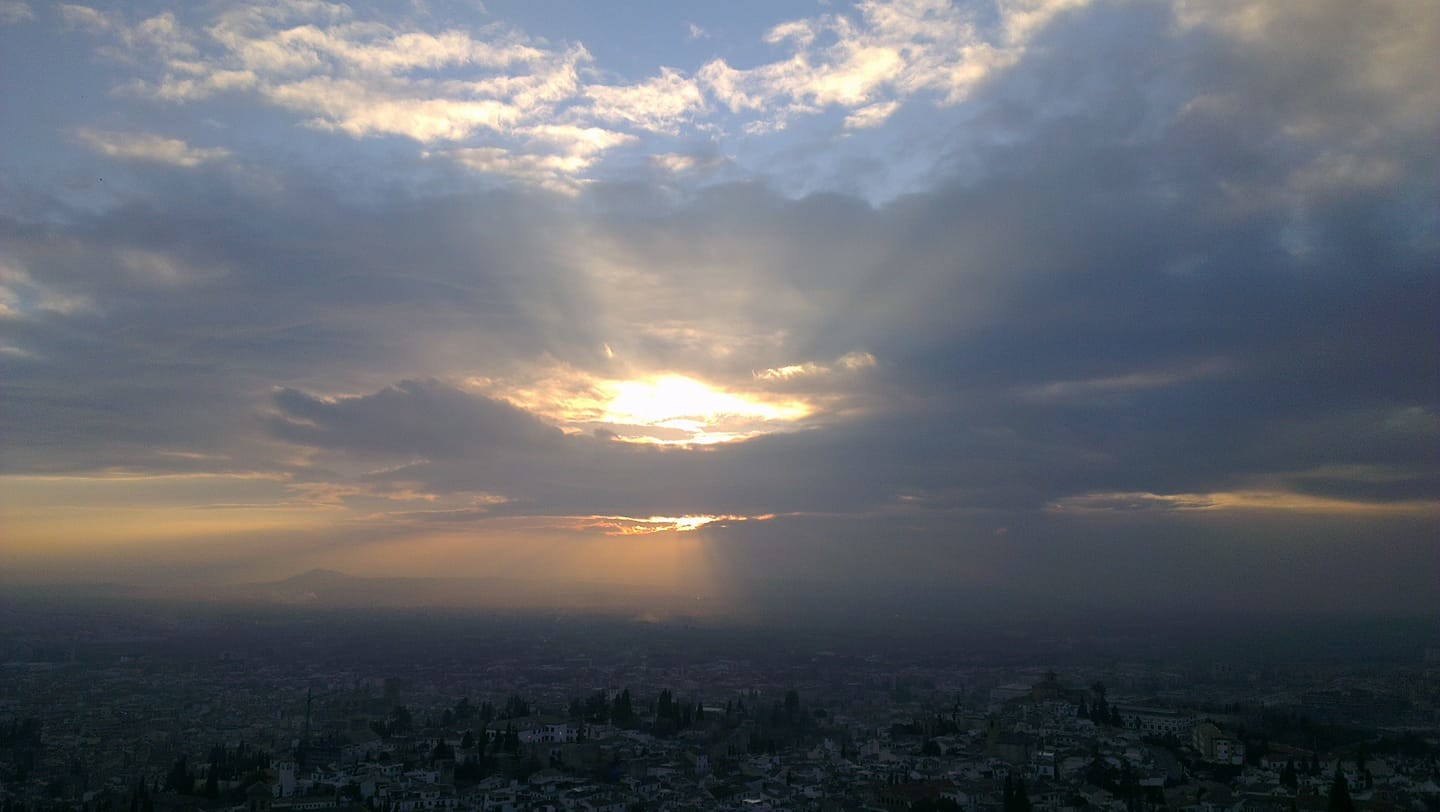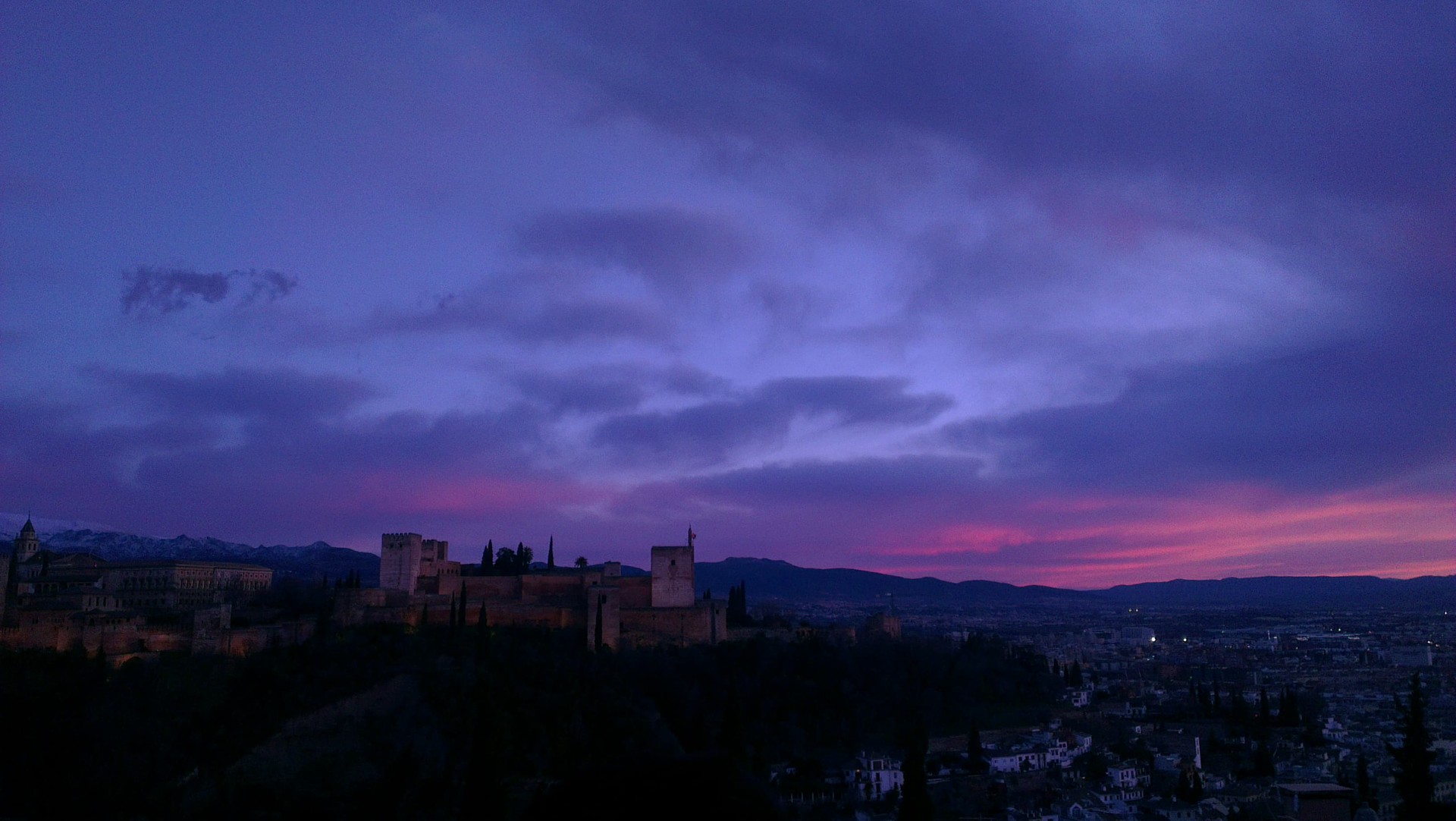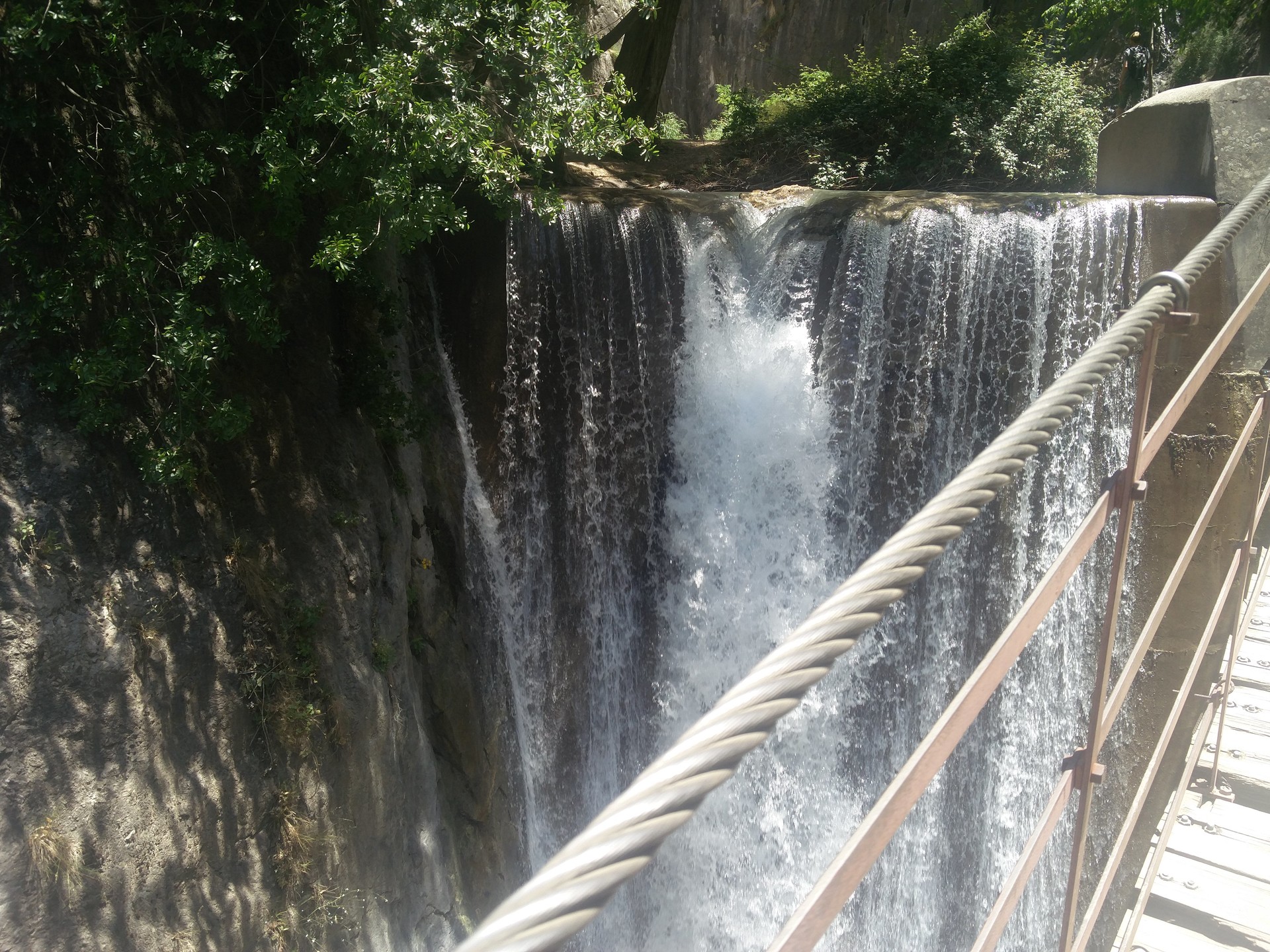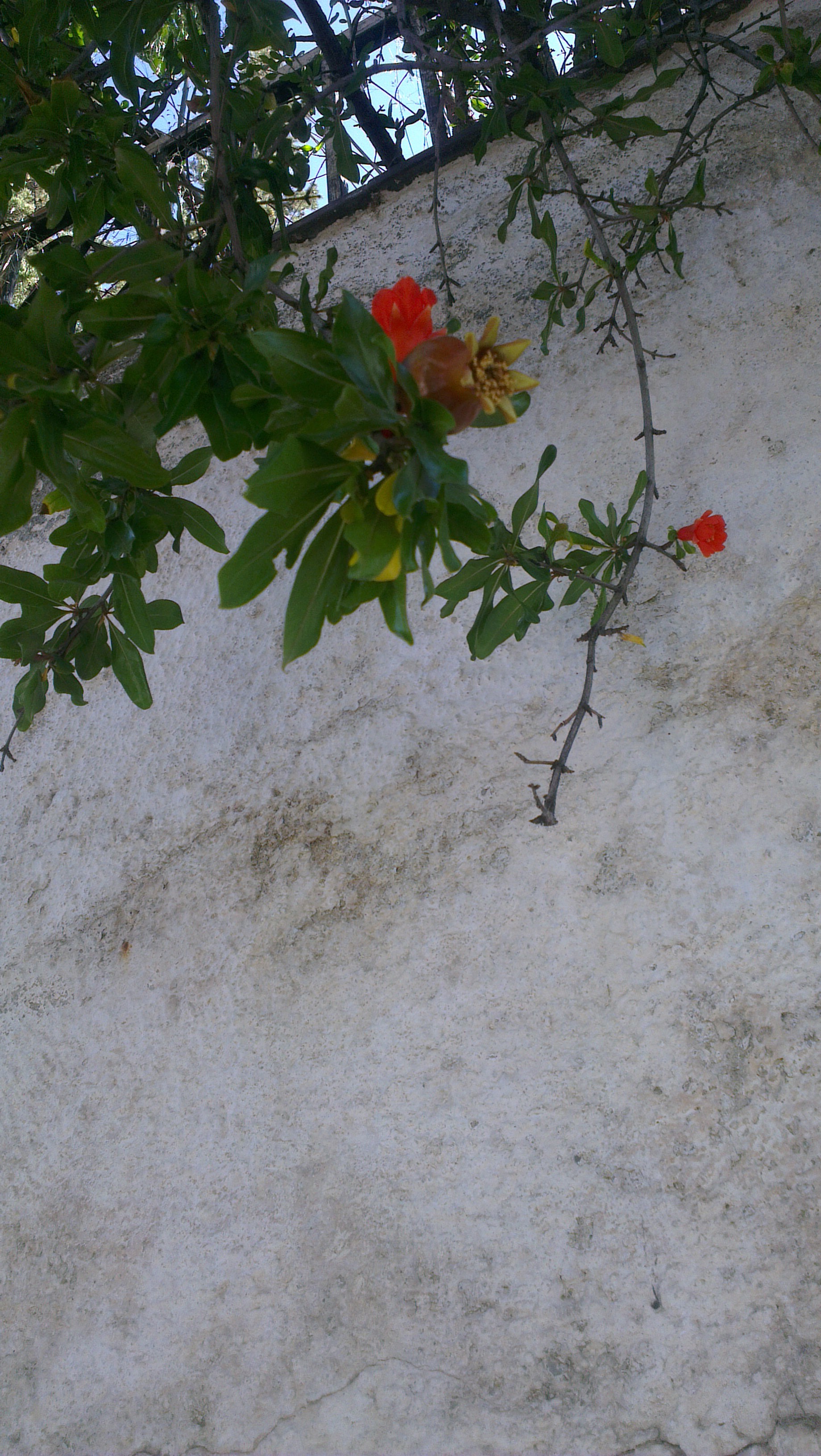Granada, the Perfect Erasmus City

What made me choose Granada for my Erasmus?
I study French and Roman language and literature. I started Spanish classes at university without knowing a single word. After three months in an intensive course, I was already at a level where I could express myself well. I loved learning the language and the Spanish culture also drew my attention.
I decided to go because not much was holding me back in Brussels at I've always loved travelling. While embarking on my Erasmus adventure I wanted to meet new people, have another point of view on different university teaching, and seize this wonderful opportunity to gain new experiences.
I, therefore, wanted to improve my Spanish while making the most of a great city (where it's good to live) with students from all over the world.
I've always dreamed of going to a faraway destination (like South America) but the budget for that (plane tickets, living costs etc. ) was too high to even consider. In addition, there aren't many partnerships with universities in that region.
My dream destination then shifted towards the most obvious Spanish-speaking country: Spain. Picking Spain meant choosing a place where Spanish was spoken, travel and living costs were affordable and it lived up to its reputation for a party atmosphere every night. I also wanted some sun (along with all the advantages already on my list), so I decided to choose the south of Spain.
But how could I choose the perfect city in the south of Spain to spend my six months of Erasmus? The "task" was not easy as each city had its advantages (and its disadvantages). I could pick three places in my application. I put Cadiz as my third choice since a girl from this region was doing her Erasmus in Brussels and "pitched" the benefits of her city and university to me. Next, for my first and second choices, I hesitated for a long time between Seville and Granada. My university sponsor was in Seville for her Erasmus and her experience looked like a dream come true. However, Granada seemed to be the ideal destination.
After hours and hours researching on the internet, I found out that Granada was the number one Erasmus city (in Europe) chosen by exchange students. I looked for more information and the number of international students made me want to meet them all. This was where I could live and study with traveller students keen to discover new cultures and also where I could share their choice to live a different life (to the plain day-to-day routine). Thanks to this information, I realised that Erasmus was an opportunity that many young people were taking up. Then, as my research progressed, I found reviews and opinions on Granada itself. The city appeared to be in a perfect location between the sea and the mountains. It was neither too big (that you could get lost) nor too small (to see everything in one day). So, I finally found the argument to have Granada as my "number one" city on my Erasmus application.
My coordinator then asked me to choose a programme of courses for each of the three universities that I had picked in my application. It was hard and tiring work since I didn't have access to the sites with the necessary information, as I needed to calculate the equivalent credits and had to try to have a programme that was as similar as possible to the one in my home university. So I had to change the programme thousands of times.
Next, I had to face the mountain of various administrative paperwork. You have to be prepared to knock on the doors of each lecturer, secretary etc. from the start. You have to be strong-willed and never let yourself accept the situation passively until you get the documents that you need or the information you were looking for.
I was lucky because I had accepted my first choice (after much hesitation). I was told (only at the end of 2017) that I would be going to the University of Granada from January to June 2018.
Why did I decide to spend six months there?
I was going to go during the third year of my bachelor's course. Our university faculty had told us (students in the literature, translation and communications department) that the Erasmus exchange included in a bachelor's degree was already a great opportunity, but it could only take place for 6 months (unless a truly astounding one-year exchange project was made) because we would also have the opportunity to go a second time and for a longer period during our master's degrees.
It was therefore not really a choice but rather what I had to do adapt to the department's offer.
Looking back, I think that a one-year Erasmus exchange would be more enriching, realistic and rewarding. In fact, arriving in January means arriving in the middle of the academic year; friendship groups have already been established, and the course programmes are already full. What's more, six months fly by too quickly; you arrive not long before you have to move again. There's so much to discover and so much to learn that it would be more convenient to benefit from this experience for at least a year.
Would I have gone without an Erasmus grant?
The answer is obvious: without the Erasmus+ grant offered by my university, I wouldn't have been able to go (financially speaking).
After being selected for the Erasmus exchange, the Université libre de Bruxelles (ULB) automatically granted us with an "Erasmus+" scholarship. This is calculated according to the average costs of living depending on the destination. Each place is recorded in a table where we could see the monthly amount that we would receive from the university if we did our exchange there.
Spain has the living standard level 2, so ULB gave us a monthly 300-euro scholarship. The total scholarship amount is calculated according to the official start and end dates of the semester (lessons and exam periods) at the host university. Three quarters of the scholarship was transferred to us before we left and the rest would be given to us after our return and the official completion of our dossier for the exchange (with signatures, grade sheets etc. ).
The scholarship is calculated to cover all of our spending for six months. Although this financial aid was very useful, it didn't cover absolutely all of the costs for an Erasmus (even in such an affordable city like Granada). This should be further improved in the years to come even though we are already lucky to receive such help.
If you fail, the entire scholarship must be refunded.
Requests for further scholarships can be made to the French-speaking community or other organisations, but it's still very hard to get.
How's the uni over there?
The University of Granada (UGR) is made up of several campuses split across the entire city and each campus has its own advantages. Each campus has a quiet area (a cafeteria, park, courtyard etc. ) depending on its location in the city.
The philosophy and literature department (on the Cartuja campus) has a lot of charm, and is located above Granada, giving a magnificent view of the city and the mountains.
The teaching method is very different in Spain. One of the benefits of an Erasmus was discovering another way of university teaching. Once we were there, we forgot what Belgium had instilled in us and found a new way to consider university courses. In Spain, the lecturers knew all their students by their first names and their studies. At the start of each class, the lecturers checked the attendance by passing a list around. In other words, you have to attend all classes. The classes have a lot more participation, and students speak almost more than the professors. The teaching is based on student's opinions. In general, UGR's level seemed easier and more accessible than ULB's. However, in terms of organisation, UGR is more advanced than ULB. Erasmus dossiers are handled better, the exam schedule is given at the start of each course, and so on.
What differed the most is the relationship between teachers and students. In Spain, students can speak to lecturers informally and call them by their first names. It's really unsettling for someone who's followed the Belgian university system and has always been taught to respect a certain hierarchy.
What's student life like in Granada?
Student life is incredible in Granada!
Granada is the cheapest city in Spain so it's the perfect deal for a student budget. Rent, groceries, activities and nights out will all be affordable.
Each night of an Erasmus stay in Granada is a "fiesta", every night there's something fun to do. And there's something for everyone (from Monday to Sunday, it's crazy)! On Mondays, there's an international meal that ends in a nice bar. On Tuesdays, no one misses the chance to go Chupitería 69 for shots that cost less than a euro each (there are over a hundred options). No one has been to Granada without spending their entire Wednesday night at Mae West, the city's most famous club, where the vibe and tunes take you into the early hours of the morning. On Thursdays, we're always drawn by the beautiful surroundings of the Boom Boom Room club and we love their chic and trendy nights. On Fridays we take advantage of Alhambra life in the reputed Albacín district nightclub Camborio. And the weekends are full of even more madness.
But student life isn't just about going out, it also means making the most of the beautiful weather, the culture and discovering the city's charm. In Granada, you can go from the beach to the mountains in under an hour. You can walk in the beautiful Albaicín and Realejo districts to get lost in its beauty for the whole night. We like strolling near the river for hours. We love walking along the Paseo de los tristes when it's nice out, passing by the lively Plaza Nueva (through the street with tourists and buskers). Curiosity drew us to central city streets, made us want to visit the cathedral and spend the entire day within the marvelous Alhambra to see its floral and architectural beauty which has remained for centuries. We can go to the San Miguel Alto watchtower to watch the sunset to the sound of a guitar. We love the magnificancee of Alhambra lit up from San Nicolas watchtower

Many small restaurants and tapas bars become student HQs, everyone will go to calle Pedro Antonio at least a hundred times when they're feeling peckish or want to have a drink with friends. The cheapest and most popular restaurant that is full every night once it's open (where you must go if you're starving and when you're "tinmayao", as Granada's inhabitants would say), called El Peruano, is on calle Gonzalo Gallas (the other main road in the city centre filled with students in the evenings). Masae is the best Asian restaurant in Granada but isn't cheap in terms of the prices. If you're on a tight budget, you can go to the university canteens that have various set menus (starters, mains and desserts) for just 3 euro 50 if you show your student card. You can try the pionono de Santa Fe, and have a tortilla de patatas made for you in no time. At bars, you can order a "milno" (1925) or a Alhambra roja (always served with free tapas). You can get tea on calle Elvira or go to the plaza Bib Rambla to eat chocolate churros.
Secret spots to discover

The Cahorros de Monachil allows you to go for hikes and make the most of waterfalls, and is close to Granada. Several routes can be taken (you may find yourself alone on top of the mountain with all the space for you, or try to go over the rocks that block the path).
You can dive into the magnificent Cubillas Reservoir hundreds of times, where you can try out standup paddleboarding and kayaking with views of the Sierra Nevada. Calmness and tranquility reigns in this mini paradise.
You can spend hours admiring the view from the Manuel de Falla centre before walking through the Carmen de los mártires gardens.
Not to be missed
The semana santa is an important period all over Spain and amazing religious parades are organised in Granada - you should go to see one at least once.
During the fiesta de la Cruz, everyone sings and dances all over the city.
The Feria del corpus Cristi is huge, and mixes tradition and fiestas. Everyone wears traditional clothing to go dancing for days in a row. The student atmosphere is crazy.
The fiesta del agua y del fuego takes place in Alpujarra and is a truly incredible event that you must see.
The weather
I was told that Granada always has beautiful weather. I arrived during the only year where it rained for an entire month, and temperatures were below average. However, the good weather came in the end and I must say that it's always great to benefit from such good weather. The temperature only rises.
Accommodation
I chose to live with two locals in a cheap house near my campus. Looking back, I think that I would have preferred living with other Erasmus students, to experience this very unique exchange together.
The language
Going on an Erasmus exchange in the south of Spain to improve my Spanish wasn't such a good idea since they "aren't well-spoken" and "mumble" in Granada etc.
The "malafollá de Graná" is infamous all over Spain. The "andalou" and "granainos"'s favourite words are "joder", "hostia" and "Lavín" (which translates to "shit" in English). You can say that you're are talking "bocanas" (rubbish) with your friends, that you call "tía" or "tío", throughout the day. When you want to say something like someone truly from Granada, add "polla" to your sentences. When you're shocked (as in "what the fuck") you can say "que puto coño es eso" and when something pisses you off you can say that it's a "coñazo".
At the start, you don't understand anything that they're saying, and you get the feeling that they never speak clearly or they've left out parts of words and never pronounce their "S"s or "D"s.
You'll get used to it and will eventually talk like them without realising it. People ask if we're from Granada since we happened to pick up the accent.
Erasmus also gives the chance to meet and spend time with Spanish speakers from other parts of the world. It's really funny to notice the difference in expressions and distinguish Latin American accents. It's like they're singing differently when they pronounce words in Spanish.
Trips
Planes, buses, metro, hiring a car - every option is affordable to get around Granada and beyond.
My advice to future Erasmus students in Granada

You must make the most of it, each moment is precious! Time passes very quickly - each second should become a memory! You should make a list of things to do before going: speak to the locals, visit as many things as possible, get lost (to find your way around better), go to typical spots and find your favourite. Go out, eat, drink, party, try everything new (that's what makes unique moments), go wild (you only live once after all! ).
Taking part in activities organised by Best Life Experience (and ESN) is a must to make friends from all over the world, discover every corner of the city and experience the best moments of your Erasmus (they offer everything, it's crazy)!
Photo gallery
Content available in other languages
- Français: Grenade, la ville Erasmus par excellence
- Español: Granada, la ciudad Erasmus por excelencia
- Italiano: Granada, la città Erasmus per eccellenza
- Nederlands: Granada, de Erasmusstad bij uitstek
- Deutsch: Granada, die Erasmus-Stadt schlechthin
- Português: Grananda, a cidade Erasmus por excelência
Share your Erasmus Experience in Granada!
If you know Granada as native, traveler or as exchange student... share your opinion on Granada! Rate different characteristics and share your experience.
Add experience →



















Comments (0 comments)